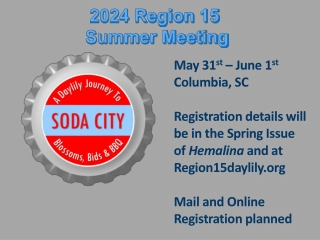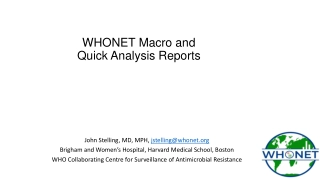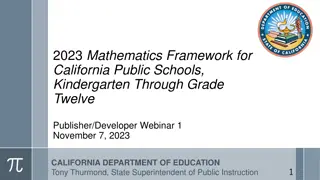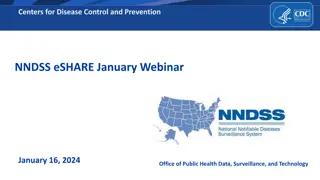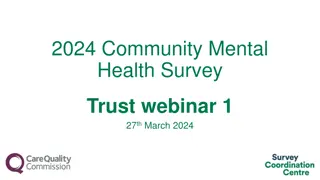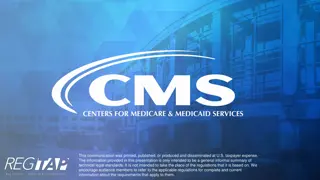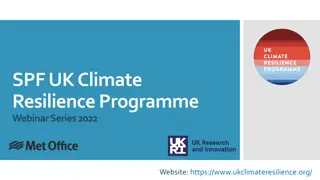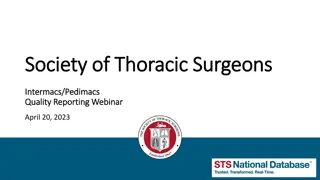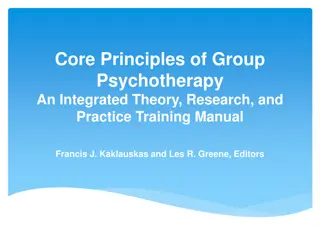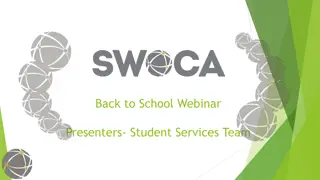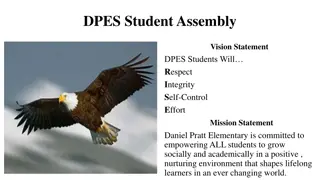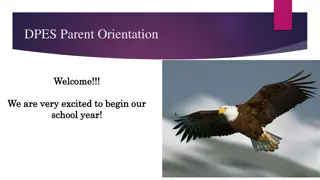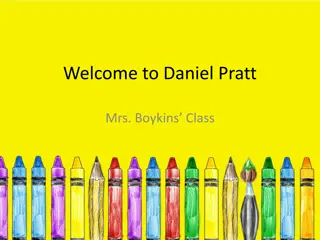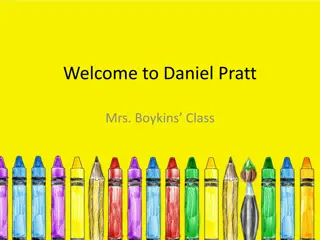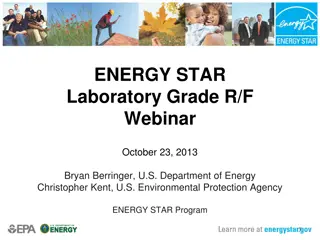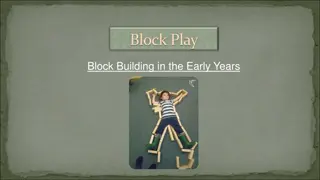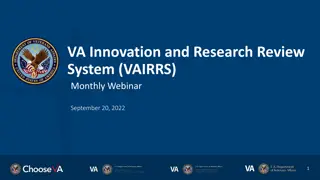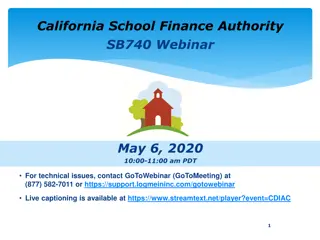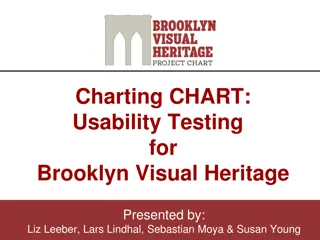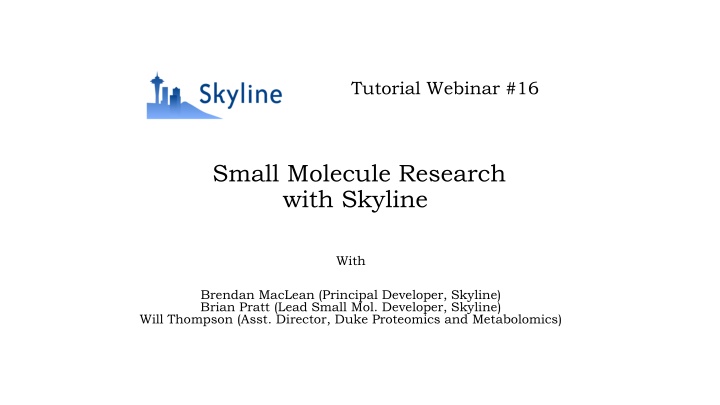
Small Molecule Research with Skyline: Insights and Progress
Explore the evolution of small molecule research with Skyline software, from its inception to the current state. Learn about the challenges and advancements in supporting small molecules in proteomics workflows.
Download Presentation

Please find below an Image/Link to download the presentation.
The content on the website is provided AS IS for your information and personal use only. It may not be sold, licensed, or shared on other websites without obtaining consent from the author. If you encounter any issues during the download, it is possible that the publisher has removed the file from their server.
You are allowed to download the files provided on this website for personal or commercial use, subject to the condition that they are used lawfully. All files are the property of their respective owners.
The content on the website is provided AS IS for your information and personal use only. It may not be sold, licensed, or shared on other websites without obtaining consent from the author.
E N D
Presentation Transcript
Tutorial Webinar #16 Small Molecule Research with Skyline With Brendan MacLean (Principal Developer, Skyline) Brian Pratt (Lead Small Mol. Developer, Skyline) Will Thompson (Asst. Director, Duke Proteomics and Metabolomics)
Agenda Welcome from the Skyline team! Small Molecule Research with Skyline Introduction with Brendan MacLean Skyline small molecule overview with Brian Pratt Tutorial with Will Thompson Audience Q&A submit questions to Google Form: https://skyline.ms/QA4Skyline.url
It Began with Targeted Proteomics ASMS 2010 Oral presentation First question: When will Skyline support small molecules? ASMS 2013 Skyline User Group Meeting Andy Hoofnagle presents lipidomics method in Skyline Using amino acid modification trick Summer 2014 Intern Max Horowitz-Gelb Implemented charged loss fragments as custom ions March, 2015 Skyline 3.1 released with first small molecule support September, 2016 Skyline R01 (round 2) funds small molecules
Proteomics Roots Peptide instead of molecule Protein as the logical grouping for molecules Charge as a positive number (protonation) Isotopic labels as peptide modifications Molecular fragmentation calculated on the fly This is ideal for proteomics Not so great for generalized small molecules But as our users recognized it s just a layer atop a body of code applicable to both regimes
Initial steps, circa 2015 Introduced ability to define molecules with chemical formulas, and group them in molecule lists but UI was largely still in terms of peptides and proteins Added support for negative ion mode data, but charge was still stored as a number rather than as an adduct description Ionization and isotopic labels had to be embedded in the molecule s chemical formula - so in reality we replaced peptide with an ion rather than a molecule Thus no concept of a neutral molecule with multiple ionizations and labels - a big handicap in quantification No spectral library support for small molecules
Current state of Skyline for small molecules Full support for adducts de facto standards, and user-defined Isotopic labels are part of the adduct description This means Skyline finally understands the idea of a molecule with multiple ionizations and labels, enabling all of Skyline s quant capabilities Small molecule spectral libraries are supported, including NIST and various search pipelines, and can also be generated by Skyline We are currently adding fragment annotation capability to libraries (something not needed for peptides, where we can derive the fragmentation) UI is increasingly context aware, less peptide-centric as appropriate Ongoing ion mobility improvements, including support for Bruker TIMS data
Future directions for small molecule support in Skyline Chromatographic retention time is a major remaining built-in assumption in Skyline, and support for direct injection experiments is a priority Increasingly context-aware UI, and other usability improvements like smarter copy+paste from Excel to Skyline s targets window (bypassing the Edit|Insert|TransitionList window by understanding more column headers) Additional search pipeline result imports Populating transition lists from lists of InChiKey (or CAS, or HMDB etc) values Molecule and fragment visualization? What are your priorities? Take the survey at https://goo.gl/forms/eo6iOXbwqGG6zs8r1 or email me at bspratt@proteinms.net
Learn More Webinar #17: TBD (coming soon) Weeklong Courses 2018 Buck Institute, Novato, CA April 2-6 Northeastern University, Boston April 30 May 11 ETH, Zurich July 2-6 University of Washington, Seattle July 30 August 3 Workshops and Conferences 2017 Workshop at MSACL, Palm Springs January 20&21 Workshop pre-Lorne, Melbourne January 29-31 Workshop US HUPO, Minneapolis March 10&11 Short Course at ASMS, San Diego June 2&3 Skyline User Group Meeting at ASMS, San Diego June 3 Listings updated in Join Us section of Skyline homepage: https://skyline.ms/Skyline.url
Questions? Ask any questions at the following form: https://skyline.ms/QA4Skyline.url Take the post-webinar survey: https://skyline.ms/survey4webinar.url
Tutorial Webinar #16 This ends this Skyline Tutorial Webinar. Please give us feedback on the webinar at the following survey: https://skyline.ms/survey4webinar.url A recording of today s meeting will be available shortly at the Skyline website. We look forward to seeing you at a future Skyline Tutorial Webinar.

